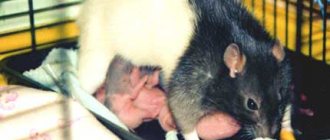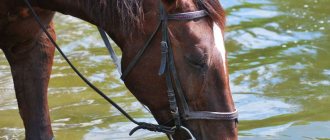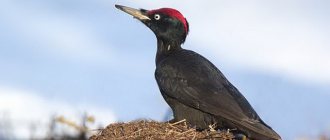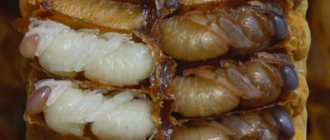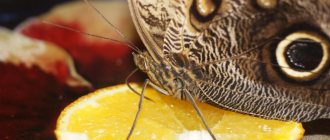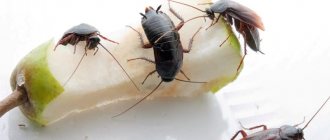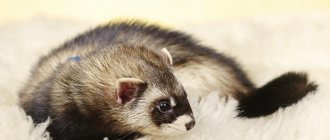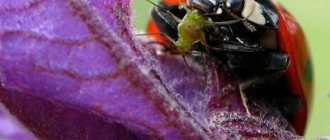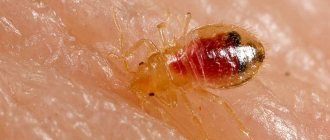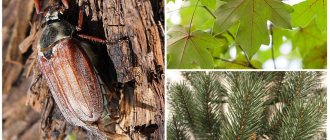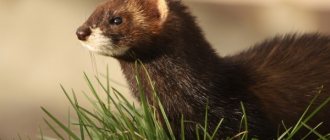Ferrets have long established themselves as unusual pets. These representatives of the mustelid family are loved for their developed intelligence, attractive appearance and funny behavior. Taking into account the popularity of cute animals, the issue of feeding animals in captivity becomes relevant. Organizing a ferret's diet is a responsible matter. Every person who wants to own this cute and playful animal should be aware of this.
Eating in the natural habitat
As a rule, wild ferrets choose burrows as a place to live. Because it is there that they can store food for themselves in sufficient quantities.
Ferrets' favorite foods are meat and eggs. Animals can easily get into the chicken coop and steal the bird from there. Even if a person has made every effort to protect his barn from ferrets, the small animals will still get creative and find a way to get to the food.
Sometimes ferrets eat worms, spiders, various beetles, caterpillars and even wounded animals. With their help, the body is saturated with protein.
Population and species status
- The black-footed ferret is now classified as an endangered species. These animals suffered especially in the last century, when prairie dogs began to be exterminated en masse in order to preserve pastures. Therefore, by 1987, there were only 18 black-footed ferrets. In this regard, it was decided to remove the remaining individuals from the natural environment and place them in zoos in order to breed them artificially. By 2013, the number of this ferret species in nature exceeded 1,200 individuals and the number is constantly increasing even today. Despite this fact, the species has not lost the threat of extinction, and is therefore protected by law.
- Steppe ferret . Populations of this species of animals are practically stable throughout their entire habitat, although there are some fluctuations, which depend on various factors of natural origin. And yet, some subspecies are listed in the Red Book, as they are on the verge of extinction, so scientists are busy artificially breeding them.
- Black ferret . Despite the fact that this animal is found throughout its natural habitat, its numbers are constantly declining. The black ferret belongs to the category of valuable furry animals. More recently, it was hunted en masse, but hunting is currently prohibited.
We can safely say that the number of ferrets around the world is gradually declining, which puts them on the brink of extinction and all thanks to human activity, although he is taking a lot of steps to finally stop this process. Despite such efforts, there are few of them, since not only ferrets, but also many other animals, deprived of natural habitats and food supply, are on the verge of extinction. To stop this negative process, a person will have to invest a lot of money, which today he so thoughtlessly invests in weapons capable of destroying all life on the planet.
In addition to the fact that humans cause irreparable damage to nature, natural disasters are no less dangerous and destructive. Just look at the fires and floods that claim the lives of not only people, but also the lives of a huge number of animals. Of course, if people did not interfere with their natural habitat, the number of animals would be able to recover naturally, although it would take a lot of time.
Ferrets are quite interesting and beautiful creatures that are a real decoration of the wildlife world. Therefore, man’s task should not be to destroy this beauty and uniqueness, but to preserve it, and in our days, to restore it. If this is not done, then our children and our grandchildren will have to live in conditions where such beauty will remain a thing of the past for them. If animals disappear from the face of the earth, then man will also disappear, although he still does not realize it.
Ferret: what kind of animal and what to eat it with
Diet features
By nature, ferrets have developed the habit of storing food for future use. Therefore, when observing, you can notice how this nimble animal, instead of eating food, takes it and hides it in the most reliable place. This happens in natural conditions. But there is a need there, because the animal must make sure that there is something to eat during the cold season.
For domestic ferrets, there is no need to stock up, so it is better to give them food in small portions.
It is worth giving food 2 times a day, trying to choose the most correct foods. A ferret's diet should include:
- Grains – millet, oats, seeds, including watermelon.
- Fruits – preferably apples and pears.
- Vegetables - pumpkin, cucumbers, zucchini, tomatoes, bell peppers.
- Dairy products - kefir, always low-fat and without sugar, cottage cheese and natural yogurt.
- Chicken meat is boiled and always lean.
- Boiled fish, cooked without salt or spices.
- Boiled eggs – 2 times a week.
- Berries - currants, strawberries, cherries, cherries, gooseberries, blueberries.
- Insects and beetles, which can be purchased at a specialty store. It is not recommended to give ordinary earthworms, because the animal may become infected.
- Greens – leaves of vegetable crops, sprouts of grain plants.
During the winter season, you need to make sure that your pet receives a sufficient amount of vitamins. Ferrets enjoy eating dried fruits, peas and dried beans.
Features of feeding ferrets during periods of growth, molting and pregnancy.
Nutrition during these periods should be enhanced, as the animal’s energy consumption increases . Portions are becoming larger, meals are being eaten more often.
It is worth considering additional fortification of food
with vitamins . The ferret will enjoy the well-known vitamin D , which all children dislike so much. An animal can drip fish oil directly onto the tongue: 3-4 drops for males, 2-3 drops for females and adolescents. Also, during special periods, the content of B vitamins , phosphorus , calcium and iron-containing preparations .
Vitamins for ferrets
If your ferret eats a natural diet, in addition to the main food, you can purchase vitamin pastes , designed specifically for ferrets. But when feeding the ferret with dry food, the animal does not require any additional vitamins - they are already present in sufficient quantities in the food.
During pregnancy, a female ferret may experience a decrease in appetite. Find out why this happens and what needs to be done?
Greens suitable for feeding
Greens must be present in the daily diet. It contains many vitamins and microelements that play an important role in health.
Acceptable green feeds include the following:
- lettuce leaves;
- parsley;
- dill;
- basil;
- clover;
- calendula;
- chamomile;
- sage;
- lovage;
- young bamboo;
- fresh wheat sprouts or oats.
But there are also green foods that should never be given to ferrets:
- sorrel;
- mint;
- spices;
- grass
Farshekashi recipes
Farshekasha is a mixture that is often used to feed ferrets. It may contain several ingredients.
Recipe No. 1
Designed for young puppies and growing individuals. The composition of farshekashi includes:
- chicken stomachs – 1 kg;
- chicken necks – 2 kg;
- rice or buckwheat groats – 400 g.
The breeder presented the recipe for farshekashi in his video below:
Preparing farshekash is very simple:
- Grind the cereal into flour, then cook until completely cooked.
- Grind the offal into minced meat, which is mixed with the finished porridge.
- Add vitamins in the required quantities to the minced meat.
Recipe No. 2
This recipe is prepared for adult animals. Farshekasha consists of the following components:
- cottage cheese – 60 g;
- fish – 150 g;
- beef heart – 100 g;
- chicken meat – 0.5 kg;
- rice – 100 g;
- poultry fat – 10 g.
The cooking process is very simple:
- Cook the rice for 2-3 hours, grind the remaining ingredients into minced meat.
- Mix the resulting minced meat with porridge, add the necessary vitamins.
- Divide the finished minced meat into portions and place in the freezer.
Special feed
In pet stores you can buy not only items for feeding ferrets. Nowadays, complete dry food enriched with vitamins and minerals is available for sale.
In order to choose the most suitable food for a particular pet, you can try giving it different types. As a result, it will be possible to determine the most preferable option among all feeds.
When purchasing dry food, you need to carefully study the packaging. It is necessary to completely eliminate any damage, since the food inside may be damp and no longer suitable for consumption.
The composition should not contain a large amount of sunflower seeds. They are high in calories, which is unsafe for health. But the presence of dry vegetables, fruits and grains in the food indicates its good quality.
What are the best treats to give your pet?
The shelves of supermarkets and pet stores offer a wide variety of dietary supplements that you can use to please your pet. Most often, such additives consist of cartilage or tendons of various fractions. Ferrets are also treated to cat treats, but before doing so, they will carefully examine them. If your ferret or cat treat contains:
- Sugar.
- Legumes.
- Cereals.
- Sweeteners and preservatives.
- Fruits.
It is better to leave such supplements lying on the shelf - they are not useful for the pet. If the product contains meat, then you can safely take it for your animal, he will appreciate it. In stores for ferrets there are specialized pastes that are both treats and auxiliary vitamin elements.
The paste contains the necessary daily intake of vitamins that are beneficial to the animal. But you don’t have to spend money in stores buying expensive supplements. You can find your ferret's favorite treats by opening the refrigerator.
Meat
By nature, ferrets are carnivores and the majority of their diet consists of meat. Please your pet with tasty additions to the main diet:
- He will definitely like lamb meat in combination with beef, boiled or raw.
- Offal. Naturally, we are not talking about chicken or turkey giblets. But your pet will really like chicken hearts or liver.
- Boiled turkey.
All these delicacies are easy to prepare, but the main thing is to cut the meat into small pieces. Please note that you should not give pork to your ferret.
Amount of feed consumed
If a person becomes the owner of a ferret, he must learn the basics of caring for the pet. It is important to remember that ferrets are nocturnal animals. All their activity occurs during the dark hours of the day. During the daytime they prefer to sleep. Therefore, they should be fed heavily in the evening and a little in the morning.
The amount of food that one animal needs at one time depends on its size, type, state of health, and activity.
Important! There is no need to give a lot of food in reserve. Anything that the ferret cannot eat will definitely be hidden in a secluded place.
It is important to ensure that your small pet’s supplies do not contain perishable foods. For example, cottage cheese, kefir and meat must be removed after 8 hours, otherwise the animal may be poisoned. It is necessary to check the supplies that the ferret has made, remove everything that is spoiled from there, replacing it with fresh ones. If the animal discovers that it is missing, it may become stressed.
If your pet eats ready-made dry food, then the daily nutritional intake can be found on the packaging. Typically, the daily feed intake is 2/3 of the pet’s body weight.
The correct diet for ferrets
Although ferrets are often compared to other pet cats, and they are indeed similar in size, ferrets have very different needs.
The approximate daily diet of a ferret should have the following ratio:
- 32-35% animal protein
- 15-22% fat
- up to 20% carbohydrates
- 2-3% vegetable fiber
Food for ferrets
There are three options (schemes) for feeding ferrets: natural food , live food and dry food .
You can only choose one scheme, as they cannot be mixed!
Natural food
If you make your choice in favor of this nutritional plan, you must understand that natural does not mean pasture at all. Ferrets are far from omnivores , this is their difference from cats and dogs.
A third of their daily food intake should be porridge , preferably the so-called “princely”, that is, consisting of several grains (rice, buckwheat, wheat, oatmeal). The remaining two-thirds consists almost entirely of meat ingredients:
- poultry meat,
- lean beef or lamb (boiled only),
- sea fish (mackerel, herring, trout, flounder, horse mackerel, cod).
You cannot replace animal protein with vegetable protein in a fret's diet.
The simplest solution is to stock up on minced meat . This is the name of pre-prepared food, obtained by mixing 1/3 parts of cooked cereal and 2/3 parts of minced meat. Such minced meat must contain not only pure meat, but also poultry by-products - hearts, stomachs, liver, lungs and all the rest. Only such a diet will be a complete replacement for the natural one.
Farshekasha can be prepared in advance, divided into small portions and frozen. In the evening, transfer the daily amount of the product from the freezer to the refrigerator so that it thaws and is suitable for the ferret to eat.
You should not give your ferret food that is too cold. It is better to warm it to room temperature.
An adult male ferret eats 300-400 grams of food per day, females and adolescents eat half as much, and small ferrets eat three times as much.
Chicken or quail eggs can be an addition to the animal’s daily diet. A boiled chicken egg can be given to a ferret no more than 3 times a week.
Feeding the ferret farshekash
How to give a ferret a quail egg? It is worth choosing quail eggs, which can be given to the animal either boiled or raw, one daily.
As for vegetables, ferrets are not very fond of them. Moreover, pieces of hard vegetables can cause choking and cause blockage in the ferret's digestive system, as well as damage the ferret's teeth.
Therefore, you should be more careful when introducing vegetables into your diet. If you decide to feed them to your fluffy, chop them or boil them. In crushed form, they can be added to minced meat in an amount of no more than 10%. But vegetables do not have any special nutritional value for these animals.
Separately, it is worth mentioning the delicacies . For ferrets, a treat is a piece of banana , a raisin , a slice of cucumber or cheese . Occasionally you can pamper your pet with cottage cheese or sour cream .
But you can’t feed your ferret treats every day. In the case of these animals, it would be good to introduce the so-called “Saturday sweets” rule. Of course, don’t give sweets, but the principle is clear: treats only once a week.
Live food
It is also an all-natural nutrition option. But it is unlikely to be suitable for faint-hearted owners .
Since ferrets, although small, are still predators , a real joy for them will be feeding them with live foods - mice , chickens , large insects and worms .
This food can be purchased at pet stores.
Dry snacks
Ready-made dry cat food , only specialized specifically for ferrets, can become a way of feeding if it is more convenient for you to simplify the care of the baby. This food contains the correct balance of nutrients a ferret needs. But when feeding dry food, we must not forget about the ferret’s drinking regime . It is necessary to provide the animal with round-the-clock access to fresh, clean water.
If it is difficult to find special food for polecats in your city, pay attention to extra (premium) class cat food. Examine the packaging for protein content - it should be 33-34%. And although experts strongly do not recommend feeding a ferret with cat food, in rare cases, expensive cat food can become a temporary replacement for a ferret’s diet if there is enough meat in the composition .
When choosing dry food for your ferret, carefully monitor its condition - how it feels, what its appetite is, and whether there are any unwanted reactions.
Foods that should not be given to ferrets
To avoid problems and keep your pet healthy, you need to feed it correctly. There is a list of foods that need to be completely excluded from your pet’s diet:
- Spices.
- Potato.
- Spicy, salty, smoked and canned foods.
- Citrus.
- Onion and garlic.
- Mushrooms.
- Bread.
- Ready-made breakfast cereals.
- Pasta.
- Sweet.
- Dandelion leaves.
- Cereal leaves.
In order not to harm your pet, you should be careful about its nutrition. All of these products negatively affect the gastrointestinal tract and can cause poisoning.
How to choose dry food?
Before choosing dry food, be sure to read what components are listed in the composition. It is worth paying attention to the following points:
- Poultry meat should be listed first; if it is premium food, then there may be two types of meat.
- The content of plant fibers should be no more than 3-5%, since furo is difficult to digest fiber.
- The percentage of ash should not exceed 7%, otherwise the pet runs the risk of developing urolithiasis.
- The food should contain the amino acid taurine, which is good for the heart and eyes.
- It's best to avoid foods that contain cornmeal, especially if it's listed first.
Feeding the Cubs
Baby ferrets usually don't require much attention if their mother is okay. She is able to provide her offspring with everything they need, so there is no need to feed them additionally.
It’s another matter if the babies are left without a mother or she simply refuses to feed them. In this case, you will have to make a lot of effort to feed the babies artificially. To do this, you can use a pipette. Pet stores sell special food for newborn ferrets. These feeds need to be diluted to produce milk.
Small ferrets need to be fed every 2 hours. It is useful to massage babies' bellies to improve digestion. In addition to basic food, newborns, like adults, need water. It must certainly be warm, but not hot.
Starting from two weeks of age, boiled cereals, egg yolks, cottage cheese and greens can be introduced into the diet. You can also use meat puree.
A little later, if the body of small ferrets copes well with the food offered, you can transfer them to a nutritious diet. The only condition is that the food must be thoroughly crushed, for example, grated. But still, you shouldn’t suddenly stop feeding formula; babies will be stronger with it. They will also adapt more easily to a new diet.
What are the dangers of a plant-based diet for ferrets?
- Plant proteins are incomplete and cannot provide the ferret with a full range of amino acids.
- The saliva of all carnivores does not contain amylase and is not able to digest sugar, which leads to fermentation of food in the digestive system and subsequent stomach upsets. Sugar is also harmful to the pancreas; its increased content can lead to the development of a malignant tumor.
- A ferret needs fat, since fatty acids are responsible for the functioning of the sebaceous glands and the quality of the fur, otherwise the hair becomes dull, deteriorates and falls out.
- Ferrets have a short intestine and most carbohydrates do not have time to be digested and absorbed.
Vitamins for pets
Ferrets' nutrition should be complete and balanced. If for any reason the animal lacks vitamins, for example, in winter, when there are no fresh herbs and vegetables, there is a need to saturate and support the small organism with special supplements.
In winter, you can give sprouted grains; they are rich in vitamins. If there are no grains, you should contact a veterinary pharmacy, where you can purchase special vitamin complexes. These can be powders, drops, tablets, granules.
Vitamins presented in the form of granules and rice balls do not have any therapeutic effect; they are used for prevention.
Minerals are also necessary for the normal functioning of the body. Most often, their deficiency is compensated for by adding meat and bone meal to food (about 2 times a week).
Reviews
Valeria Mullina February 5, 2022 at 4:36 am
Ferrets are terrible delicacies! And, of course, you can also pamper them with something delicious.
What you can give ferrets: bananas, apples, pears and other fruits that your furry friend prefers. Horenki also love fresh soft buns and bread. You can give raisins, dried apricots and nuts, but the nuts must first be crushed in a coffee grinder (or chewed as a last resort J), otherwise they will come out in the same form that the ferret ate them. It is very useful to give quail eggs a couple of times a week. Quail ones, not chicken ones! Now on sale you can find special treats for ferrets, for example, Yogies Ferret Treats from All of the above should be given in small quantities!
What NOT to give: Candy Milk Sausages (any: boiled, smoked).
Special treats for commercially produced ferrets are now on sale. Unfortunately, almost all of them can harm the animal. Here's what renowned domestic ferret veterinarian Susan Brown :
“...9 out of 10 types of treats developed specifically for ferrets did not contain any meat components at all, but consisted entirely of sweeteners and grains with a small addition of vegetables and fruits. Not only is it not healthy, it’s dangerous to your ferret’s health...” Even well-known ferret supplements (often used as treats) such as FerretTone contain paraben preservatives, which, according to some sources, may be carcinogenic. Plus, Brown says, people tend to overfeed their ferrets with treats. And if the ferret happily ate one candy, then why not give him five more? But for a ferret with its small weight, 6 pieces of treats will make up a significant part of its daily diet. Of course, ferrets love sweets, but that doesn't mean they're healthy.
Remember that treating yourself to a “yummy” treat is a purely human need; ferrets themselves do not feel any need for it. But if you really want to pamper your ferret, you can offer him a piece of raw liver, raw meat, a very small amount of cucumber, banana, watermelon, pear, melon or other vegetables and fruits, a quail egg, chicken necks and paws, etc. acceptable for the ferret products.
One of our members sometimes feeds his ferrets a healthy homemade treat. Here is the recipe for the treat
:
- one part fish oil;
- two parts linseed oil;
- one part refined olive oil;
- a little sea buckthorn oil until light orange;
- you can add a little wheat germ oil (then you get almost FerretTone, but without harmful preservatives).
The ingredients are mixed in a small plastic dropper (about 20-25 ml), since the mixture does not last very long. The ferret is given 5-15 drops per day as a treat, especially often during shedding.
Feeding rules
To keep your ferret healthy and in good spirits, you need to adhere to some feeding rules.
- Products (vegetables, fruits, meat, cottage cheese) that are offered to your pet must be fresh and free of rot.
- All seeds must be removed from the fruit to prevent the animal from choking.
- Remove food that has a short shelf life from the cage in a timely manner.
- Provide your pet with clean drinking water.
- You can give your pet fruits and vegetables only 2 days a week.
- It is necessary to give solid food because the animal must grind down its teeth.
- Eliminate salty and fatty foods from your diet.
- You need to get used to new foods gradually.
- Eliminate sour fruits from your diet.
- Exotic fruits should not be given.
- Do not overfeed your pet.
- Do not give your ferret food that is prepared for humans.
How to water ferrets
Ferrets drink a lot of liquids, so it is important to provide them with a constant source of clean water at room temperature. In the feeding area, it is better to install two drinking bowls with automatic drinking. Your pet will not knock over the bowl if you use heavy dishes. The cleanliness of drinking bowls must also be carefully monitored.
Lack of water can lead to overheating and dehydration of the animal.
If possible, you can arrange a small fountain in the cage; the ferret will splash around in it with pleasure.
Recommendations for hosts
To make it easier and more correct to keep a ferret at home, you should pay attention to some recommendations from experienced breeders and specialists in this field:
- If an animal develops diarrhea, you should give it rice porridge cooked in water. In ordinary life, rice is contraindicated precisely because of possible constipation.
- Among ferrets there are also picky people. You can buy dried crustaceans in stores especially for them. They are rich in protein, which is necessary for the life of a pet. In addition, small animals eat them with pleasure.
- A female expecting offspring needs clean water and healthy food more than others. The diet of pregnant females has its own peculiarities, the main one of which is the ban on apples. They should not be given to cubs under the age of 1.5 months.
- Old ferrets and very young ferrets should not be given too rough food due to age-related changes in the teeth. At an early age they have not yet become stronger, but in old age they have already worn out and lost their strength. Therefore, it is recommended to grind their food before feeding.
- Ferrets living at home retain many habits. One of them is storing food for future use. Therefore, the animal’s home needs to be arranged so that it can find a secluded place for its supplies. The main thing is not to forget to periodically check them and remove unfit for food products, replacing them with fresh ones.
- Ferrets may chew on something other than because they are hungry. These animals have a natural need to grind their teeth. To avoid overeating and damage to property, it is better to put a stick in the cage that the ferret can chew if desired. This can be a branch of an apple, pear, hazel, beech and other deciduous trees.
- If your ferret shows signs of obesity, you need to limit or completely eliminate all flour products (rolls, dryers, crackers) from his diet. You can set up a special labyrinth so that the animal can run and move more. If possible, the ferret should be allowed out of the cage to run around more often.
Having taken on the responsibility of keeping a ferret at home, a person must know how to feed it and what its nutritional requirements are. Often, due to inexperience and general ignorance, people feed animals incorrectly. This has a bad effect on their health and appearance. Therefore, before purchasing a pet, it is better to prepare in advance and consult with a specialist.
What is dangerous to feed?
Not only plant foods in large quantities are harmful to these pets. Many components we are familiar with pose a danger to ferrets.
| Dangerous and harmful foods for ferrets | |
| Type of feed: | Cause: |
| pork | possibility of infection with Aujeszky's disease, used only in boiled form |
| chicken by-products | When raising poultry, hormonal drugs and antibiotics are used, which accumulate in the internal organs |
| raw fish | the presence of parasites, such as diphyllobothrium, can only be used after freezing |
| boiled bones, boiled meat with bones | cooked bones are not digested, but are destroyed in the intestines into sand, causing coprostasis |
| sour milk | Causes stomach upset in ferrets |
| Rye flour | may cause intestinal dysfunction |
| sugar, sweets | insulinoma, gastroenteritis |
| dog food | high content of plant components in any class |
Useful tips
In order for your pet to be healthy and energetic, you need to follow a diet. You need to take care of the ferret carefully, then many problems can be avoided. You should not feed your pet only dry food. Usually they can be suitable if the owner leaves for a short time and is not able to take the ferret with him, and therefore trusts relatives or friends to look after the animal. The ferret's diet should be balanced and standardized, in accordance with age, weight and health status. It is important to feed the foods that the ferret eats.
Another important point: you cannot feed a forest predator with cat food, because this is contrary to their nature. The best ready-made food is one that has been produced specifically for this group of animals, otherwise it must be a hard no.
You should also pay attention to the diet in winter, during molting. The diet of females and males differs. Males need larger portions. You should be very careful about the quality of products and the expiration date of feed. It is also very important to observe the ferret's behavior, as sudden changes may indicate poor health of the animal. A healthy ferret is very active. Don’t forget about foods that are contraindicated for ferrets. Animals should not be overfed: the ferret should eat small portions.
In addition to the feeding regimen, you must also monitor the drinking regimen. Water must be in the shelf at all times, otherwise the ferret will simply die from dehydration. Sometimes it’s worth pampering your pet: it will bring pleasure to both you and him. It is very important to show attention and care to the animal and play with it. You can try different games, this is the only way to really find one that he really likes. If you follow all the recommendations for nutrition and care, your pet ferrets will be happy, and their nutrition will be well adjusted.
